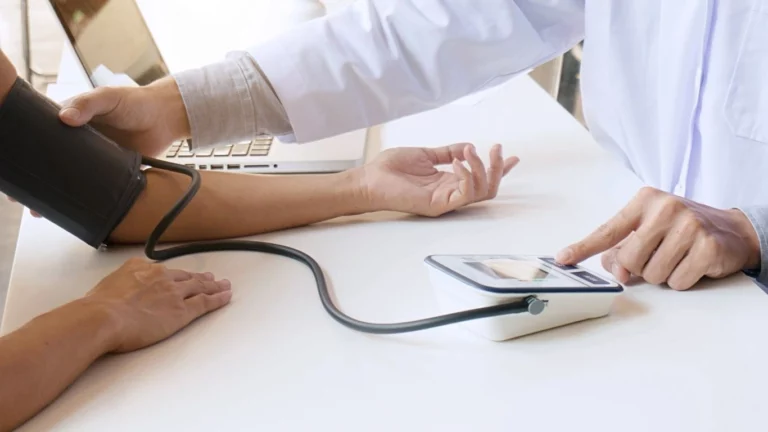How to Prevent GERD While Sleeping: Effective Nighttime Strategies
Ever wake up coughing, with a burning throat or a weird taste in your mouth? If you deal with GERD, you know exactly how frustrating sleep can be. I used to dread bedtime because I never knew if I’d wake up choking or with that sharp, sour pain creeping up my chest. But once I learned how to actually prevent reflux before it happens — not just treat it after — things changed fast.
This article isn’t just about what to avoid. It’s about what you can do to stop GERD from ruining your sleep in the first place.
What Triggers GERD at Night (and Why It Feels Worse)

When you’re upright during the day, gravity helps keep stomach acid in place. But when you lie down, acid has an easier time moving into your esophagus. Your body’s natural defenses, like swallowing and saliva production, also slow down while you sleep — giving acid a better chance to cause irritation.
Nighttime GERD symptoms can include:
- Burning sensation in the chest or throat
- Dry cough or hoarseness during sleep
- Regurgitation of food or sour fluid
- Interrupted sleep or waking up suddenly gasping
Not sure if it’s really GERD messing with your sleep? The full explanation is available in this complete guide to GERD and sleep — it helped me connect the dots when symptoms didn’t seem obvious at first.
Powerful Sleep Setup Changes That Help Prevent GERD

I used to stack pillows, thinking I was helping myself. Truth? That barely moved the needle. What finally helped was making small changes to how I sleep — and they were surprisingly easy.
Here’s what actually works:
- Elevate your upper body: Use a wedge pillow or incline your bed 6–8 inches. This keeps acid down and helps digestion continue naturally overnight.
- Sleep on your left side: Your stomach sits lower on this side, which helps prevent reflux. Right-side sleeping does the opposite.
- Avoid sleeping flat or curling up tightly: Both increase intra-abdominal pressure and worsen GERD.
These aren’t just tips I found online — they’re backed by studies from the National Institute of Diabetes and Digestive and Kidney Diseases and trusted GI specialists.
Smart Nighttime Habits to Reduce Acid Buildup

One of the biggest mistakes I made? Eating too close to bedtime. Even healthy food can trigger reflux if your stomach is still full when you lie down. Here’s what helped me stop it before it starts:
- Finish your last meal 3 hours before bed: No late-night snacking unless it’s reflux-safe.
- Stick to smaller portions at night: Large meals increase stomach pressure and acid production.
- Keep meals low-acid and low-fat: Think grilled veggies, lean proteins, and non-citrus fruits.
Some of my favorite evening go-tos are warm oatmeal, steamed zucchini, or a banana with chamomile tea. I’ve also found great options in this list of GERD-friendly bedtime snacks.
Relaxation Techniques That Can Calm Reflux Naturally

Stress and poor sleep are a vicious combo when it comes to reflux. When you’re tense, your digestive system slows down — and that delay means food and acid linger longer in the stomach.
Try these gentle wind-down routines:
- Deep breathing or guided meditation (even 5 minutes before bed can help)
- Gentle yoga poses that avoid pressure on the stomach (like child’s pose or legs up the wall)
- Warm (not hot) shower or bath to relax muscles and prepare your body for rest
Don’t underestimate how much your mindset affects digestion. Ever notice how reflux flares after a tense argument or deadline? That’s no coincidence.
When You Might Need Extra Help

If your nighttime reflux is frequent, intense, or keeping you up several times a week, it’s time to talk to your doctor. There may be underlying causes like a hiatal hernia, weakened LES, or even obstructive sleep apnea — all of which require specific treatment.
Your provider may recommend:
- Prescription medications (like PPIs or H2 blockers)
- Diagnostic imaging or endoscopy if symptoms persist despite lifestyle changes
- A referral to a sleep specialist if breathing disturbances are involved
Need an overview of your treatment options? This breakdown of GERD treatment strategies includes both medical and holistic approaches — all explained in simple terms.
Better Sleep Starts With Prevention

GERD doesn’t have to control your nights. Once I started focusing on prevention — not just treating symptoms — I finally got the uninterrupted sleep I hadn’t had in years. The key is consistency: consistent meals, bedtime, sleep posture, and stress management.
And if you’re still figuring it all out, I strongly recommend checking out this full guide on GERD and sleep quality. It’s packed with expert advice that connects all the dots.

Camellia Wulansari is a dedicated Medical Assistant at a local clinic and a passionate health writer at Healthusias.com. With years of hands-on experience in patient care and a deep interest in preventive medicine, she bridges the gap between clinical knowledge and accessible health information. Camellia specializes in writing about digestive health, chronic conditions like GERD and hypertension, respiratory issues, and autoimmune diseases, aiming to empower readers with practical, easy-to-understand insights. When she’s not assisting patients or writing, you’ll find her enjoying quiet mornings with coffee and a medical journal in hand—or jamming to her favorite metal band, Lamb of God.







